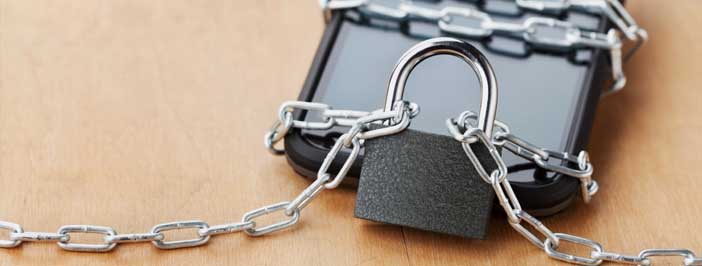Data protection is a hot-button issue that has gained more attention in the wake of several data breaches across multiple industries. Protecting your data and your customers’ data is becoming more difficult and even more important.
Fancy security systems and software can help, but they’re ultimately rendered useless without following the most basic security tips.
Here are a few of them.
1. Use Strong Passwords
You’ve probably already heard about the importance of using strong passwords, but we can’t stress the importance enough. Your strongest security system is only as strong as the password you use to unlock it.
One of the most famous incidents occurred two years ago when it was revealed that Mark Zuckerberg himself fell victim to having his social media accounts hacked due to a weak password.
A strong password doesn’t use words that can be found in the dictionary. Ideally, a password would contain multiple symbols and numbers that make it hard to guess, even for malicious software.
Related: A Look at the Security of Your Email Server
Lifewire provides a helpful guide that provides examples of the best kinds of passwords that are both secure and easy to recall for robust data protection.
2. Backup Early and Regularly
Hard disk crashes and memory card failures can happen from time to time. In other cases, a human error can be the cause of the incident. In the event of such a disaster, it’s important to have a way of retrieving important files and documents.
That’s exactly where backups come in.
In essence, you use data backups for data protection. They prevent data loss and corruption. In the case of such a major disaster, a backup of data is your best bet for making sure you don’t lose vital information.
It’s a vital recovery method. It’s also your fail-safe, but be warned: there are a lot of details to consider.
Related: What You Get with Cheap Data Backup
For example, do you want the data in the same building?
Should you place it emotely?
How fast do you need to be able to recover the data?
Who should have access?
These questions may seem trivial at first glance, but it makes all the difference. Take for example the River City Data breach. Spammers improperly configured their own backups and, in a twist of fate, had their own information leaked.
3. Hire a Specialist
Admittedly, data security and systems protection is a complicated process with lots of technical jargon and programming involved. Sometimes it’s best to hire a specialist who knows the ins-and-outs of cybersecurity.
Cybersecurity specialists are a growing demand in today’s increasingly hyper-connected world. ISACA, a non-profit cybersecurity advocacy organization, estimates that there will be a shortage of two million cybersecurity professionals by 2019.
Related: Why Switch Your IT to Managed Services
It goes on to reveal that as many as 53% of organizations have difficulty finding properly qualified professionals to manage security breaches.
As the saying goes, an ounce of prevention is worth a pound of cure.
If you’re not great with sayings, it simply means this – look into hiring a professional sooner rather than later.
4. Secure Wireless Networks
Most people have probably already secured their WiFi networks. How many people know about the dangers of having unsecured networks, besides strangers using up your bandwidth?
Related: How a great firewall can save your business from a huge headache
An unsecured connection is a nightmare scenario for data protection. It can leave you exposed to hacking software that can break into your systems and compromise data and passwords.
Unfortunately, there are many ways this can occur. Symantec’s Norton lists the multiple dangers such as man-in-the-middle attacks, malware distribution, snooping, sniffing and more.a


